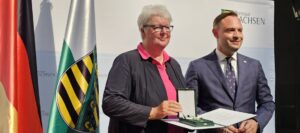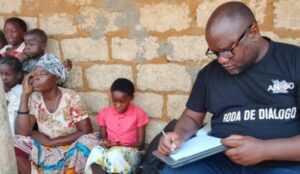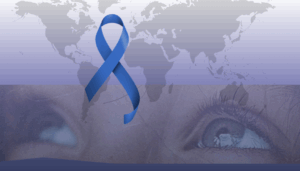The Congregational Safeguarding Team continue their ongoing efforts to strengthen safeguarding, striving to inspire sisters and partners-in-mission to embrace it as a way of life and integrate it into all ministry work.
Following the initial Training of Safeguarding Trainers (TOST) sessions held throughout the Congregation, safeguarding team members have been traveling to various countries to facilitate four-day safeguarding refresher workshops for Unit Leaders, Safeguarding Link Councilors, Safeguarding Focal Persons, and members of the respective Unit Safeguarding Committees.
The workshops provide a refresher on the 2022 Congregational Safeguarding Policy and offer additional input on case management. They are a unique opportunity to hear from safeguarding personnel and leaders on what good practices are in place, consider gaps, and revise action plans at every level of the Congregation.
Workshops have so far been held in Madagascar, Angola, Argentina, and Vietnam – with the most recent being held at the Good Shepherd Training and Spirituality Centre in Cebu, the Philippines. Facilitated by Arlene Manorahan and Sandra Neville, this workshop was attended by twenty participants from the Philippines, Japan, Korea, Taiwan, Hong Kong, and Macau.
As Congregational Safeguarding Facilitator, Arlene, brings 33 years of experience as a social worker with expertise in child protection, restorative justice, and safeguarding to her role which she has held since July 2022. She has worked with numerous NGOs, as a research fellow at the Centre for Child and the Law at the National Law School of India University, and is a member of the Funder Safeguarding Collaborative’s peer-learning communities of practice on safeguarding.
Sandra, our Congregational Safeguarding Advisor, works primarily with male and female missionary congregations having worked in safeguarding since 2007 at various levels in the Catholic Church and with many INGOs and NGOs.
The four-day workshop focused on standards 1, 2, and 3 of the Congregational Safeguarding Policy. Arlene reminded participants of Pope Francis’s call in 2019 to prioritize the safeguarding of minors and vulnerable persons. The risk assessments carried out in all communities and ministries since then to better understand any harmful behaviors and practices were reviewed in the workshop. These evaluative assessments provide an action plan to ensure that no harm will happen to those whom we serve, live, and work with.
Sandra focused on managing safeguarding concerns, complaints, and allegations. She reiterated the need to be survivor-centered while managing and supporting the subject of the complaint. One participant spoke of how “the input helped me to be very careful in dealing with both survivors and the subject of the complaint because my words and actions may make or break a person”.
Since the introduction of the safeguarding policy, concerns and allegations of harm or abuse in our communities and ministries have been raised. The team feels confident that this is a testament to the fact that the safeguarding policy provides a framework for people to come forward and feel empowered to raise their concerns.
Further workshops will be held in Mexico this month and in Rome during April where participants will again be invited to revise the proposed unit safeguarding action plans for 2024, based on their discussions and new insights gained during the workshops.
All allegations or other concerns of harm of abuse that relate to a sister, partner-in-mission, etc. of a community or ministry should be reported to the Congregational Safeguarding Advisor at safeguarding@gssweb.org.







